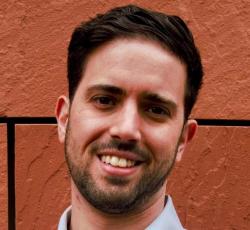The fifth annual Mother’s High Tea brought some of the most influential women in cannabis together to remember their struggles, honor their successes and uphold a new generation of leaders.
The non-consumption event held May 12 at Denver’s historic McNichols Building also marked a milestone for event founder and Cannabist contributor Susan Squibb, who is celebrating 20 years of advocacy for marijuana and hemp law reforms.
“It’s just exhilarating,” Squibb said at the event. “The energy women are bringing to marijuana is palpable, and today we saw how women are driving the industry to be stronger and more inclusive while also embracing the movement to seek equality and social justice.”
After mingling over tea and crumpets, attendees at the event heard a spirited introduction by guest emcee Jaime Lewis, founder and CEO of Colorado’s Mountain Medicine edibles company and a board member of the National Cannabis Industry Association (NCIA).
“We’re celebrating a female plant that needs to be protected,” she told the crowd. “But so do we need to be protected as women in cannabis.”
The five speakers Squibb assembled for Mother’s High Tea — including Lewis — featured industry pioneers as well as a new crop of cannabis advocates fighting for equality and justice for communities of color.
Washington state entrepreneur Ah Warner encouraged the women of cannabis to be diligent in their pursuits but stay balanced in their personal life.
She built her health and beauty company Cannabis Basics over two decades, and last year she helped orchestrate the passage of a law removing cannabis health and beauty aids from Washington’s list of controlled substances.
An important part of Warner’s balance is Women of Weed, a private social club she founded in May 2013. She said she hopes the club’s success in her home state inspires other women to create community and social clubs of their own.
“Know what you want and have the power to create a community that suits your needs,” she said.
Colorado’s Diane Czarkowski told the gathering that women had a responsibility to help others benefit from the plant.
“That’s part of being a pioneer,” she said. “If all we gain is a lot of money, then we will have failed.”
Czarkowski founded one of the state’s first medical dispensaries in 2009, and she’s a founding partner of Canna Advisors, a national consulting firm that assists clients through the competitive state application process for business licenses. She’s also a founding member of NCIA.
“Ours is not a new industry, it’s a new kind of industry,” she said. “It’s one that touches on health, wellness, equality and social justice — concepts women have always fought for.”
Sonia Espinosa co-founded New York’s Cannabis Cultural Association after graduating from Harvard in 2016, seeking to increase involvement of underrepresented communities in the legal cannabis industry and effect change in criminal justice reform. She implored the group to see the similarities between the cannabis plant and America’s immigrant population.
“Both are viewed as valuable commodities and both have a long history of being stigmatized,” she said.
Both communities are also worried about the policies of Attorney General Jeff Sessions, she observed.
“But look around — we’re all stronger together,” she said. “We have the ability to build this industry right.”
Social justice was also the impetus for speaker Nina Parks to enter the cannabis industry. In 2015, she co-founded Supernova Women, a California nonprofit empowering people of color to be stakeholders in the cannabis economy.
She recounted the saga of her brother, who was jailed in New York’s Rikers Island on a marijuana conviction. America’s anti-marijuana policies are nothing more than a pathway for people of color to be trapped in the prison-industrial complex, she said.
“To me, legalization is a revolution to heal our community where it was attacked,” she said.
Even while this year’s Mother’s High Tea focused on national players, Squibb said her hope for the event’s future was increased local advocacy. In her remarks she announced that she had filed a federal trademark application for Mother’s High Tea to establish licensing in the hope others would be inspired to organize and host their own such events in their home cities.
“Next year, I hope women can host Mother’s High Teas coast-to-coast,” she said.
